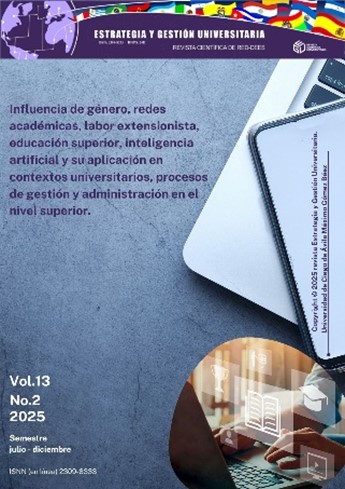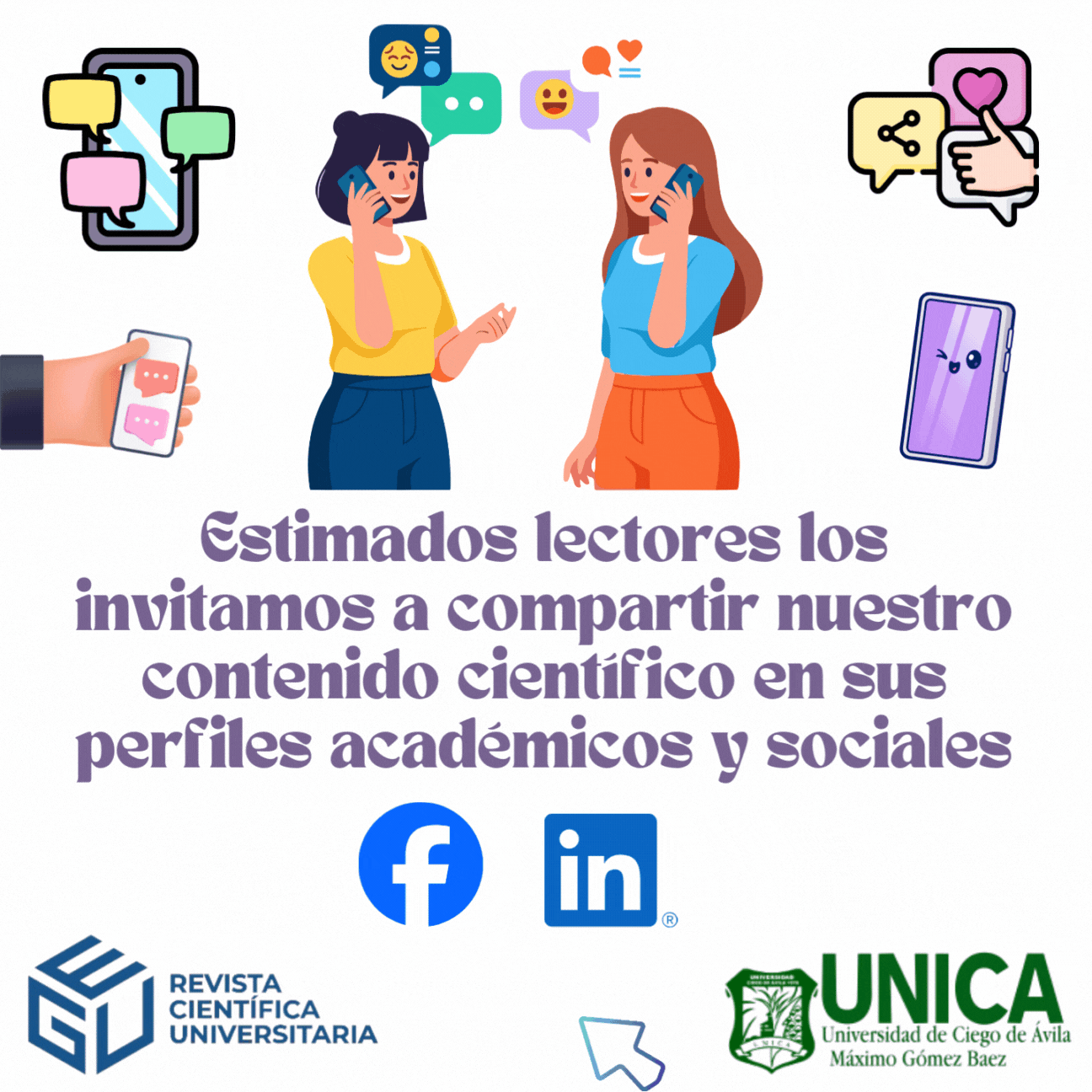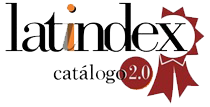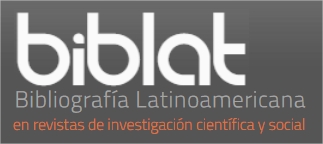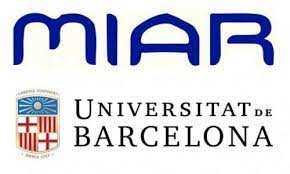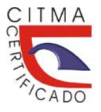Artificial Intelligence as an ally in higher education: beyond the classroom
DOI:
https://doi.org/10.5281/zenodo.17535089Keywords:
Artificial intelligence, higher education, learning, classroom, technologyAbstract
Introduction: education has undergone a significant transformation in both learning and teaching approaches. Conceived as a fundamental process for human development, it has begun to embrace emerging technologies, including artificial intelligence, while upholding diversity and strengthening the connection between educators, learners, and knowledge. Objective: to analyze how artificial intelligence has evolved from an emerging trend to an essential tool within and beyond the classroom in higher education, addressing its impact beyond traditional teaching paradigms. Methodology: an argumentative reflection was conducted based on the observation of current cases involving the use of artificial intelligence in university settings. This was complemented by a literature review of publications from 2020 to 2025 and the use of support tools such as Jenni AI and Scite AI to organize and explore the most relevant academic sources. Results: various applications of artificial intelligence in higher education were identified, including virtual assistants, adaptive learning platforms, automated learning algorithms, and predictive analytics. Conclusion: artificial intelligence does not pose a threat, provided its implementation adheres to ethical principles and takes into account existing technological gaps.
Downloads
References
Agbese, M., Mohanani, R., Khan, A., & Abrahamsson, P. (2023). Implementing AI ethics: Making sense of the ethical requirements. Proceedings of the 27th International Conference on Evaluation and Assessment in Software Engineering, 740–753. https://doi.org/10.1145/3593434.3593453
Ahmad, S. F., Alam, M. M., Rahmat, M. K., Mubarik, M. S., & Hyder, S. I. (2022). Academic and administrative role of artificial intelligence in education. Sustainability, 14(3), 1101. https://doi.org/10.3390/su14031101
Alcocer, A., Cabrera, A., & García, E. (2024). La inteligencia artificial en la educación: Desafíos éticos y perspectivas hacia una nueva enseñanza. Latam. Revista Latinoamericana de Ciencias Sociales y Humanidades, 5(6). https://doi.org/10.56712/latam.v5i6.3019
Álvarez-Carrión, J. A., Guerrero-Jirón, J. R., & Ramírez-Morales, I. E. (2025). Inteligencia Artificial en la Educación Superior: transformación académica, desafíos éticos y estrategias para la garantía de derechos. MQRInvestigar, 9(1), e224. https://doi.org/10.56048/MQR20225.9.1.2025.e224
Ayala-Pazmiño, M. (2023). Inteligencia artificial en la educación: Explorando los beneficios y riesgos potenciales. 593 Digital Publisher CEIT, 8(3), 892–899. https://doi.org/10.33386/593dp.2023.3.1827
Bennett, L. (2023). Optimising the interface between artificial intelligence and human intelligence in higher education. International Journal of Teaching, Learning and Education, 3(1). https://doi.org/10.22161/ijtle.2.3.3
Bermeo-Paucar, J., Pérez-Martínez, L., & Villalobos Antúnez, J. V. (2024). Inteligencia Artificial Educativa. “Quinta ola”, Conectivismo e Innovación Digital Pedagógica. European Public & Social Innovation Review, 9, 1–17. https://doi.org/10.31637/epsir-2024-1599
Bolaño-García, M., & Duarte-Acosta, N. (2024). Una revisión sistemática del uso de la inteligencia artificial en la educación. Revista Colombiana de Cirugía, 39(1), 51–63. https://doi.org/10.30944/20117582.2365
Cárdenas, R., & Rascón, A. (2024). El uso ético y moral de la inteligencia artificial en educación e investigación. Ciencia Latina. Revista Científica Multidisciplinar, 8(5), 3243–3261. https://doi.org/10.37811/cl_rcm.v8i5.13801
Castro, M., Ortega, C., Alvarado, N., & Sánchez, R. (2023). Inteligencia artificial en el contexto de la formación docente. Reciamuc, 7(4), 153–161. https://doi.org/10.26820/reciamuc/7.(4).oct.2023.153-161
Cherrez Escobar, G. D., Escobar Arcos, P. G., Grijalva Ramos, S. L., Tisalema Mayorga, V. del P., & León Delgado, J. A. (2024). Análisis del Aprendizaje en Estudiantes en Entornos Educativos Virtuales con el Uso de Inteligencia Artificial. Ciencia Latina Revista Científica Multidisciplinar, 8(6), 3908-3921. https://doi.org/10.37811/cl_rcm.v8i6.15133
Cobos Velasco, J. C. (2023). El papel de la inteligencia artificial en la personalización del aprendizaje. Revista Ingenio Global, 2(1), 4–12. https://doi.org/10.62943/rig.v2n1.2023.57
Cobos Velasco, J. C. (2023). El papel de la inteligencia artificial en la personalización del aprendizaje. Revista Ingenio Global, 2(1), 4–12. https://doi.org/10.62943/rig.v2n1.2023.57
Cornelio, O. M., Rodríguez Rodríguez, A., Solórzano Álava, W. L., Amén Mora, P. G., Santos Mera, L. M., & Pinargote Bravo, B. J. (2024). La inteligencia artificial: Desafíos para la educación. Editorial Internacional Alema. https://editorialalema.org/libros/index.php/alema/article/view/34
Daniel, B. (2015). Big data and analytics in higher education: Opportunities and challenges. British Journal of Educational Technology, 46(5), 904–920. https://doi.org/10.1111/bjet.12230
Dávila Cisneros, J. D., Flores Limo, F. A., Barrios Tinoco, L. M., Cavero Aybar, H. N., Calizaya Alarcón, V. G., Medina Romero, M. Á., & Romero Flores, R. A. (2023). Adjustment of Peruvian university students to artificial intelligence. Arts Educa, 36. https://artseduca.com/submissions/index.php/ae/article/view/145
Dávila-Cisneros, J. D., Fernandez-Celis, M. P., Tello-Flores, R. Y., & Puican-Carreno, A. (2024). Análisis de la comunicación alumno-profesor en la enseñanza universitaria. Episteme Koinonía, 7(14), 40-62. https://ve.scielo.org/scielo.php?script=sci_abstract&pid=S2665-02822024000200040&lng=es&nrm=iso&tlng=es
Dey, A., Ganguly, A., Banik, I. R., Bhuiya, S., Sengupta, S., & Das, R. (2025). Smart Recommendation system in E-Learning using machine learning and data analytics. SN Computer Science, 6(6). https://doi.org/10.1007/s42979-025-04249-x
Donayre Bohabot, C. C., Palacios-Serna, L. I., & Dávila Cisneros, J. D. (2024). Intrinsic motivation according to developmental stages in post-pandemic students. Salud, Ciencia Y Tecnología - Serie De Conferencias, 3, 706. https://doi.org/10.56294/sctconf2024706
Gallent-Torres, C., Arenas Romero, B., Vallespir Adillón, M., & Foltýnek, T. (2024). Inteligencia artificial en educación: Entre riesgos y potencialidades. Práxis Educativa, 19, 1–29. https://doi.org/10.5212/PraxEduc.v.19.23760.083
Gallifa, J., Sangrà, A., & Grau Vidal, F. X. (2021). Transformar la universidad: Desafíos, oportunidades y propuestas desde una mirada global. Editorial UOC
George, B., & Wooden, O. (2023). Managing the strategic transformation of higher education through artificial intelligence. Administrative Sciences, 13(9), 196. https://doi.org/10.3390/admsci13090196
Gómez, J. (2009). Reflexión y colaboración en los entornos educativos: Hacia la profesionalización docente. Teoría de la Educación. Revista Interuniversitaria, 8. https://doi.org/10.14201/3109
Gómez, S. (2012). Metodología de la investigación. Red Tercer Milenio.
González, G. (2023). Inteligencia artificial y educación superior: Una lectura desde la gobernanza universitaria. Qurriculum: Revista de Teoría, Investigación y Práctica Educativa, (36), 51–60. https://doi.org/10.25145/j.qurricul.2023.36.03
Hong, Q. N., Pluye, P., Fàbregues, S., Bartlett, G., Boardman, F., Cargo, M., ... & Vedel, I. (2018). Mixed methods appraisal tool (MMAT), version 2018. Registration of copyright, 1148552(10), 1-7. https://bmjopen.bmj.com/content/bmjopen/11/2/e039246/DC3/embed/inline-supplementary-material-3.pdf
Jaramillo, D. (2024). La gestión escolar basada en inteligencia artificial para mejorar el rendimiento académico. South Florida Journal of Development, 5(5), e3914. https://doi.org/10.46932/sfjdv5n5-016
Jordan, M. I., & Mitchell, T. M. (2015). Machine learning: Trends, perspectives, and prospects. Science, 349(6245), 255–260. https://doi.org/10.1126/science.aaa8415
León-Granizo, O., Neil, C., & Jiménez, C. (2024). La inteligencia artificial en la educación y sus implicaciones: Un mapeo sistemático de la literatura. Revista Conectividad, 5(1), 49–66. https://doi.org/10.37431/conectividad.v5i1.102
López López, H. L., Rivera Escalera, A., & Cruz García, C. R. (2023). Personalización del aprendizaje con inteligencia artificial en la educación superior. Revista ReDTIS, 7(1), 123–128. https://doi.org/10.61530/redtis.vol7.n1.2023.165.123-128.
Luckin, R., Holmes, W., Griffiths, M., & Forcier, L. B. (2016). Intelligence unleashed: An argument for AI in education. Pearson Education. https://discovery.ucl.ac.uk/id/eprint/1475756/
Maceri, S. B. y Coll, A. J., (2024) El futuro de la ciencia y la inteligencia artificial en el descubrimiento científico: Algunos interrogantes. Energeia, 8; 1; 12-2024; 51-71. https://ri.conicet.gov.ar/handle/11336/261048
Márquez Benavides, L., Moreno Goytia, E. L., & Gonzalez Ramirez, L. F. (2023). El uso de la inteligencia artificial en un entorno académico. Ciencia Nicolaita, (89). https://doi.org/10.35830/cn.vi89.721
Marr, B. (2019). Artificial intelligence in practice: how 50 successful companies used AI and machine learning to solve problems. John Wiley & Sons. https://books.google.com/books/about/Artificial_Intelligence_in_Practice.html?id=UbaIDwAAQBAJ&utm_source=chatgpt.com
Mativi, C. S., Niveiros, S. I., & Júnior, J. B. A. C. (2020). Softwares de análisis de datos cualitativos (QDA): Un análisis de artículos publicados en las bases de datos SPELL y SciELO. Revista Estudos e Pesquisas em Administração, 4(2), 156–173. https://doi.org/10.30781/repad.v4i2.10318
Mendieta Lucas, L. M., Garzón Moreno, G. J., Enríquez Delgado, R. A., & Martínez Ángulo, M. A. (2025). Evolución e innovación digital en la educación superior como impulso para el fortalecimiento institucional: aplicación de inteligencia artificial en la gestión académica y administrativa para una toma de decisiones más eficiente y sostenible. Reincisol., 4(7), 2469–2492. https://doi.org/10.59282/reincisol.V4(7)2469-2492
Meza Arguello, D. M., Obando Burbano, M. de los Ángeles, Franco Valdez, J. L., & Simisterra Muñoz, J. M. (2025). El uso de la inteligencia artificial como recurso pedagógico en la educación superior: experiencias de los docentes. Sage Sphere International Journal, 2(2), 1-10.
https://doi.org/10.63688/jrd8es89
Nimbalagundi, S., Bagawan, A., & Katageri, C. (2024). Artificial intelligence in higher education. International Research Journal on Advanced Engineering and Management (IRJAEM). https://doi.org/10.47392/irjaem.2024.0406
Ojha, S., Mohapatra, S., Narendra, A., & Misra, I. (2024). From robots to books: An introduction to smart applications of AI in education (AIEd). In Lecture Notes in Electrical Engineering (Vol. 1196, pp. 311–322). Springer Nature. https://doi.org/10.1007/978-981-97-7862-1_21
Oliver, N. (2021). Inteligencia artificial, naturalmente: un manual de convivencia entre humanos y máquinas para que la tecnología nos beneficie a todos. Ministerio de Asuntos Económicos y Transformación Digital. https://digital.casalini.it/9788492546626
Ortiz Aguilar, W. O., Benites, M. R. T., Isaac, R. M., Parejo, E. E. V.,&Álvarez, A. V. (2024). Didáctica de la educación superior virtual: actualidad y perspectivas. Editorial Tecnocientífica Americana, 300, 1-157. https://doi.org/10.51736/jcyemy48
Porayska-Pomsta, K., Holmes, W., & Nemorin, S. (2022). The ethics of AI in education. ArXiv, abs/2406.11842. https://doi.org/10.4324/9780429329067
Quinto Ochoa, E. D., Mazzini Moran, J. D. R., Erráez Mantilla, S. N., & Suasnabas Pacheco, L. S. (2024). Integración de la IA en la educación: Desafíos y oportunidades. Recimundo, 8(1), 193–202. https://doi.org/10.26820/recimundo/8.(1).ene.2024.193-202
Rodríguez, A. (2024). Hacia un marco ético de la inteligencia artificial en la educación. Teoría de la Educación. Revista Interuniversitaria, 36(2), 79–98. https://doi.org/10.14201/teri.31821
Rodríguez, G. D. L. C. L., & Baquerizo, R. M. P. (2024). Integración de la ia en la transferencia de los conocimientos científicos en el contexto universitario. In Estrategias innovadoras en la transferencia de conocimientos científicos (pp. 83-102). Dykinson. https://www.torrossa.com/en/resources/an/5852009#page=83
Rodríguez-Chávez, M. (2021). Sistemas de tutoría inteligente y su aplicación en la educación superior. RIDE. Revista Iberoamericana para la Investigación y el Desarrollo Educativo, 11(22). https://doi.org/10.23913/ride.v11i22.848
Spivakovsky, O. V., Omelchuk, S. A., Kobets, V. V., Valko, N. V., & Malchykova, D. S. (2023). Institutional policies on artificial intelligence in university learning, teaching and research. Information Technologies and Learning Tools, 97(5), 181–202. https://doi.org/10.33407/itlt.v97i5.5395
Tarisayi, K. S. (2024). Strategic leadership for responsible artificial intelligence adoption in higher education. CTE Workshop Proceedings, 11, 4–14. https://doi.org/10.55056/cte.616
Trávez Tipan, A. V. (2024). La gestión administrativa: el cambio de estrategias gracias a la incursión de la inteligencia artificial.
Revista Social Fronteriza, 4(5), e45424. https://doi.org/10.59814/resofro.2024.4(5)424
Varela, Y. (2023). La inteligencia artificial y el futuro de la educación superior. Horizontes Pedagógicos, 25(1), 1–13. https://doi.org/10.33881/0123-8264.hop.25101
Vera, L. P., & Sánchez, S. F. (2021). La base de datos científica como recurso de búsqueda para investigadores noveles. Innovación e Investigación Educativa para la Formación Docente, 1184–1191. https://doi.org/10.2307/j.ctv2gz3t2s.98
Williamson, B., & Eynon, R. (2020). Historical threads, missing links, and future directions in AI in education. Learning, Media and Technology, 45(3), 223–235. https://doi.org/10.1080/17439884.2020.1798995
Younas, A., Subramanian, K., Haziazi, M., Hussainy, S., & Kindi, A. (2023). A review on implementation of artificial intelligence in education. International Journal of Research and Innovation in Social Science, 7(8), 1092–1100. https://doi.org/10.47772/ijriss.2023.7886
Zhang, J. (2023). Impact of artificial intelligence on higher education in the perspective of its application of transformation. Lecture Notes in Education Psychology and Public Media, 2, 822–830. https://doi.org/10.54254/2753-7048/2/2022483
Downloads
Published
How to Cite
Issue
Section
License
Copyright (c) 2025 Estrategia y Gestión Universitaria

This work is licensed under a Creative Commons Attribution-NonCommercial-ShareAlike 4.0 International License.

